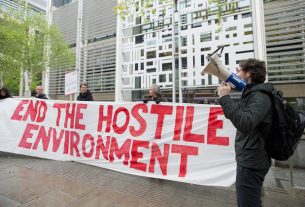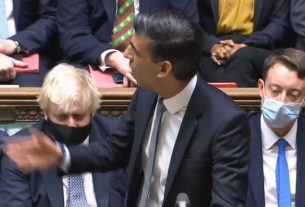Last week, Michael Gove and David Lammy attended secret cross-party talks at Ditchley House, The Observer reports. They joined leading Brexiteers, remainers, business leaders, and diplomats for a two-day conference at Ditchley House in Oxfordshire.
The paper obtained details describing the gathering as “private discussions” under the banner: “How can we make Brexit work better with our neighbours in Europe?”
In attendance from the pro-Brexit camps were senior Tory MPs Michael Gove and Norman Lamont, alongside Labour’s former Europe minister Gisela Stuart. Remainers present included David Lammy, John Healy, the shadow defence secretary, and Peter Mandelson, who chaired the talks. David Lidington, a Tory Brexit opponent and long-serving minister, was also present.
Goldman Sachs managing director Oliver Robbins, the chief UK Brexit negotiator between 2017 and 2019, was also in attendance, as was GlaxoKlineSmith’s chair John Symonds. Nato assistant secretary general for defence policy and planning Angus Lapsley and the former Treasury permanent secretary Tom Scholar also joined the secret cross-party talks.
A confidential introductory statement revealed that some feel “that so far the UK has not yet found its way forward outside the EU”, with Brexit “acting as a drag on our growth and inhibiting the UK’s potential”.
According to a source present at the discussions, the focus lay on the negative impact of Brexit during a time of global economic uncertainty. The talks were said to be “constructive”, with a source telling The Observer:
“The main thrust of it was that Britain is losing out, that Brexit is not delivering, our economy is in a weak position.
“It was about moving on from leave and remain, and what are the issues we now have to face, and how can we get into the best position in order to have a conversation with the EU about changes to the UK-EU trade and cooperation agreement when that happens?”
Michael Gove, who spear-headed the Leave campaign alongside Boris Johnson, is said to have been “honest” about the failings of Brexit whilst insisting it would emerge as the correct long-term decision.
Attendees conceded in summit documents that whilst the EU has “little interest in further wrangling over Brexit and little time being devoted to the relationship with the UK … there is also clear European and British strategic interest in a productive and closer relationship.”
The document emphasised the “shared interests on containing Russian aggression, developing new energy sources and building major technology companies with their capital base on our side of the Atlantic, rather than just the US”.
Other topics included a joint UK-EU approach to illegal immigration and organised crime and a common relationship with China. According to a source in attendance at the secret cross-party talks, the logjam over the Northern Ireland protocol was also a key topic.
Brexit in its current form is not working – attendees believe
According to The Observer, a consensus now exists whereby the current post-Brexit relationship between Europe and Britain is weakening its strategic place in the world while leaving it exposed economically.
Labour is believed to have sent representatives because the party fears the negative impact of Brexit could jeopardise the success of a future Labour government. For Michael Gove, admitting the need for closer ties now may be one way of future-proofing the success of Brexit.
The core issue of the cross-party talks was how to maintain and reframe the Brexit trade and cooperation agreement (TCA) now and in the future, regardless of the party in government. Labour has already set out its stall, saying it wouldn’t rejoin the EU or the single market, pencilling in a TCA review for 2025.




